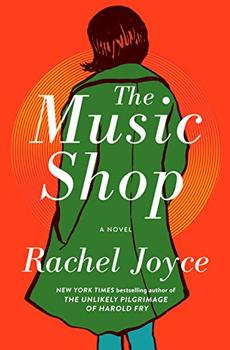Summary | Excerpt | Reading Guide | Reviews | Beyond the book | Read-Alikes | Genres & Themes | Author Bio

The addictive novel about four young friends navigating a cutthroat world and their complex relationships with each other, as ambition, passion, and love intertwine over the course of their lives.
Jana. Brit. Daniel. Henry. They would never have been friends if they hadn't needed each other. They would never have found each other except for the art which drew them together. They would never have become family without their love for the music, for each other.
Brit is the second violinist, a beautiful and quiet orphan; on the viola is Henry, a prodigy who's always had it easy; the cellist is Daniel, the oldest and an angry skeptic who sleeps around; and on first violin is Jana, their flinty, resilient leader. Together, they are the Van Ness Quartet. After the group's youthful, rocky start, they experience devastating failure and wild success, heartbreak and marriage, triumph and loss, betrayal and enduring loyalty. They are always tied to each other - by career, by the intensity of their art, by the secrets they carry, by choosing each other over and over again.
Following these four unforgettable characters, Aja Gabel's debut novel gives a riveting look into the high-stakes, cutthroat world of musicians, and of lives made in concert. The story of Brit and Henry and Daniel and Jana, The Ensemble is a heart-skipping portrait of ambition, friendship, and the tenderness of youth.
Especially early on, there is a lot of backstory and internal contemplation, and more scenes and dialogue would help us to engage with the characters. I also felt that the point-of-view could have changed a bit more frequently; the first quarter of the book is from Jana and Brit's perspectives, and for a while I worried we'd never hear from the male characters, which would be a strangely biased view of proceedings. But once you get past this point, the novel really hits its stride, and you come to care about these musicians and sympathize with their longings to make the most of their lives. I think The Ensemble will mean even more to those readers who are involved in music, but anyone can relate to the slow fade from youth into middle age and the struggle to integrate art into the rest of life...continued
Full Review
(798 words)
This review is available to non-members for a limited time. For full access,
become a member today.
(Reviewed by Rebecca Foster).
 In the second half of the eighteenth century, chamber music, which was played by ensembles (small groups of musicians and thus suitable for smaller rooms), became very fashionable. The term "ensemble" comes from the Old French word for "together" and can refer to a grouping of any size, from a duet up to a full orchestra. The Dublin-based Avoca String Quartet's website describes chamber music thus: "No particular performer features prominently, and in chamber music all the musicians play intently together. It is rather like a musical conversation in which everyone has something to say."
In the second half of the eighteenth century, chamber music, which was played by ensembles (small groups of musicians and thus suitable for smaller rooms), became very fashionable. The term "ensemble" comes from the Old French word for "together" and can refer to a grouping of any size, from a duet up to a full orchestra. The Dublin-based Avoca String Quartet's website describes chamber music thus: "No particular performer features prominently, and in chamber music all the musicians play intently together. It is rather like a musical conversation in which everyone has something to say."
The string quartet, the most frequent arrangement used in chamber music, is almost always composed of two violins, a viola, and a cello, as is the ...
This "beyond the book" feature is available to non-members for a limited time. Join today for full access.

If you liked The Ensemble, try these:

by David Mitchell
Published 2021
The long-awaited new novel from the bestselling, prize-winning author of Cloud Atlas and The Bone Clocks.

by Rachel Joyce
Published 2018
A love story and a journey through music, the exquisite and perfectly pitched new novel from the bestselling author of The Unlikely Pilgrimage of Harold Fry and The Love Song of Miss Queenie Hennessy.
It is among the commonplaces of education that we often first cut off the living root and then try to replace its ...
Click Here to find out who said this, as well as discovering other famous literary quotes!